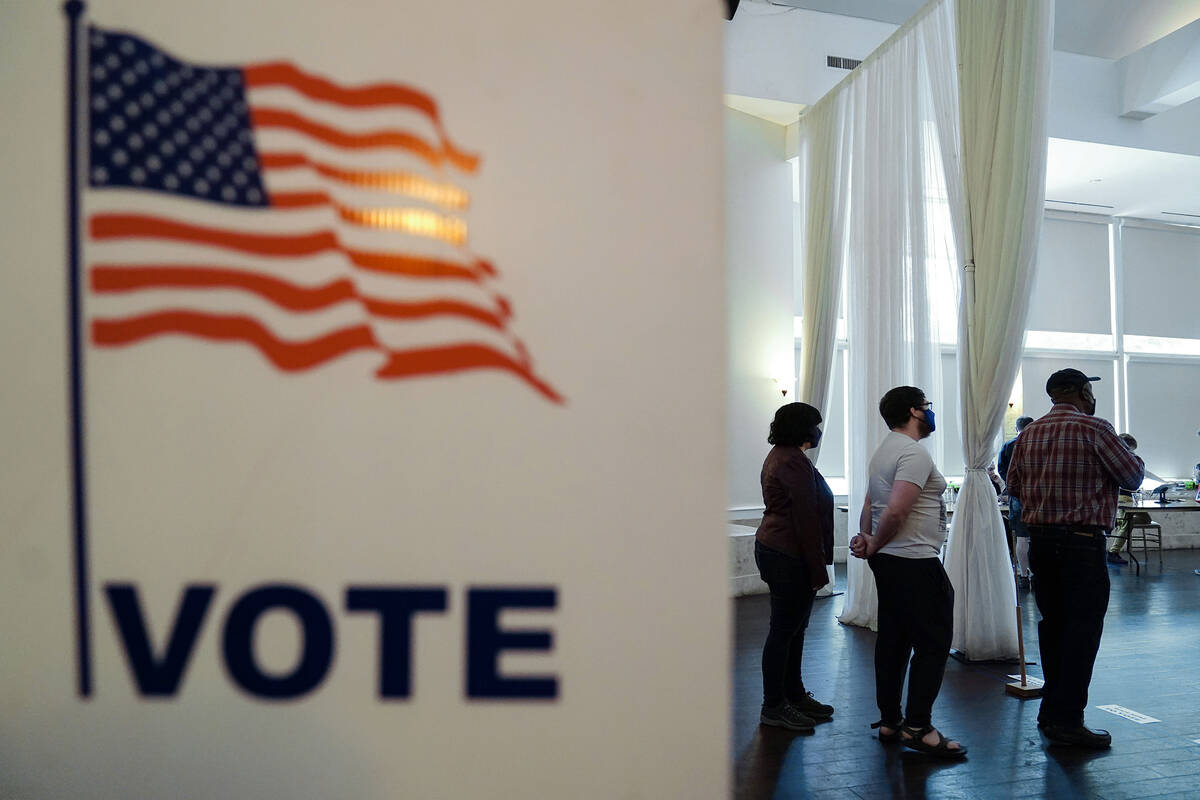EDITORIAL: Question 3 about far more than just open primaries
It’s doubtful that there’s ever been a more cynical and duplicitous statewide campaign than the one currently pushing to radically reform Nevada election law.
State Question 3 is on the ballot in November, and the TV ads promoting it have been ubiquitous on local airwaves for weeks. For the most part, however, they wholly ignore the heart of this controversial proposal. That’s no accident.
The referendum — which passed narrowly in 2022 and must gain support once more to become law — would amend the state constitution to accomplish two objectives. First, it would create open primaries, allowing all voters to participate in the Republican or Democratic candidate selection process regardless of voter registration. Secondly, it would do away with traditional voting and create a “ranked-choice” system.
Open primaries poll well with the electorate. Ranked-choice voting has far more tenuous support. Consequently, the shadowy interests who seek to impose the latter on Nevada have produced a slew of ads that entirely ignore the latter. Instead, they tout only the perceived virtues of allowing independents to help choose Democratic and GOP nominees through open primaries.
This sin of omission speaks volumes. Ranked-choice voting — in use in only three states and a handful of municipalities — complicates voting and tabulation by asking citizens to rank candidates in order of preference. If nobody receives majority support, the candidate with the least support is eliminated and the ballots adjusted and recounted. The process continues until somebody achieves 50 percent.
“This system,” Trent England and Jason Snead wrote in April for The Hill, “has resulted in thousands of discarded ballots, widespread voting errors, delayed election results, longer lines at polling places, suspect recounts and, consequently, diminished voter confidence.”
Alaska, which adopted ranked choice in 2020, is already reconsidering that decision. As Mr. England and Mr. Snead note, 11 percent of state ballots in 2022 were “spoiled,” more than three times the normal rate. Voters who fail to rank the requisite number of candidates also risk having their votes discarded.
It’s notable that places with ranked-choice voting have also been forced to spend thousands of dollars on public “education campaigns” trying to explain the new system to voters. Any system that requires an “explanatory” effort undermines efforts to encourage more citizens to exercise their franchise.
Question 3 is about far more than open primaries. It’s also about shackling Nevadans with a controversial, complicated voting system that increases uncertainty and could be vulnerable to special-interest manipulation. The fact that proponents of the initiative prefer deception to debating this proposal on its merits should be reason enough to oppose Question 3.






















